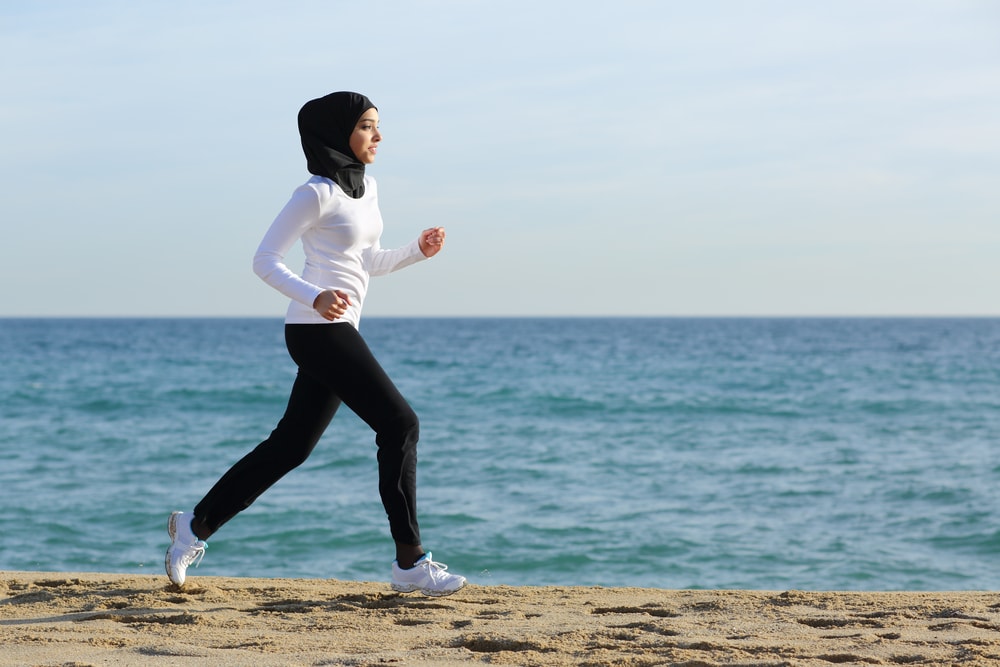It is difficult to maintain a normal exercise routine during the holy month of Ramazan due to lower fluid intake and interrupted sleep.
But finding time to exercise or exercise will not only boost your metabolism, but also make you feel good and healthy.
Adil Baksh, fitness trainer at Ultimate Performance Dubai, said: “The 30-day fasting period can be challenging and it can be tempting to abandon your fitness and health goals.”
“Long hours without food or water can put a lot of stress on your body, but with careful planning and smart training tips, you can safely and effectively lose weight or build muscle during Ramazan.”
Here are some key points to keep in mind while exercising in Ramazan.
What kind of exercise is best?
According to Baksh, “When exercising during Ramazan, the secret is to stimulate, not destroy. It’s important to take a more measured approach to training when fasting.”
Another trainer claims that he personally fasts and bases each workout on three basic principles: strength training, cardio and flexibility.
He went on to say, “The reason I favor muscle strength is because losing muscle mass will slow down your metabolism. The goal should be to avoid both, muscle loss and a drop in metabolic rate.”
According to him: “When it comes to cardio, I recommend light intensity sessions every other day, limited to 30 minutes of slow, steady distance. Remember that you will be dehydrated so your body will use your fat stores as an energy source, especially if you do cardio before iftar. However, the fact that you are exhausted means that your blood pressure may drop at the start or even afterwards, so don’t skip your warm-up and cool-down routines.”
“Similarly, when starting resistance training, choose exercises that target the upper body before the lower body to avoid any drop in blood pressure during or after. The final aspect of fitness to focus on is flexibility to avoid any mobility issues you may face, especially when you return to normal exercise after Ramadan and the Eid break.”
Best time to exercise/exercise:
You can damage your health by overdoing it, especially the midday sun and no drinking from dawn to dusk.
Exercise involving heavy weights and intense cardio are not recommended during fasting. You should also reduce your exercise routine to two cardio sessions per week during the holy month.
According to Adil Baksh, exercise must be done early in the morning, but if that doesn’t work, it should be done after Iftar.
“Working out early in the morning is best during Ramazan after the first meal of the day,” he says. “If that doesn’t work with your schedule, then hit the gym after your first main meal after iftar so your body is well fueled and has the right nutrients for optimal recovery.”
Exercising while fasting is no easy task, but choosing the perfect time is key to making sure the routine is safe and long-lasting, says clinical nutritionist Dr. Mona Mubarak.
She also said, “I recommend doing weight training before iftar, but if you prefer to exercise after iftar, try to keep your meals light and save your biggest meal for after your workout so you don’t feel uncomfortable during your workout. “
To reduce the amount of stress on the body, Mubarak also advises cutting regular workouts by fifteen minutes. Instead of exercising for 60 minutes as usual, set a time limit of 45 minutes.
“Don’t feel like you have to spend hours in the gym to get an effective workout,” adds Baksh. “If you train hard and intensely, you can get a lot done in 45 minutes. If your long-term goal is to build muscle, reducing the load and adding more sets to maintain muscle mass may be an option during Ramadan.”







